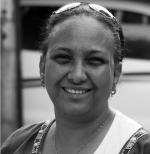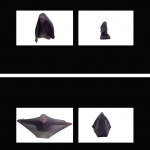The Director of the Salmmah Women’s Resource Center in Sudan explains how the organization is changing laws and advocating on behalf of women in a country ruled by Islamic law.
IMOW: As the director of Salmmah Women’s Resource Center, what would you say is your organization’s main objective?
Fahima Hashim: Salmmah’s overall goal is to enhance social justice, gender equity, and women’s human rights in order to empower women and youth for social transformation. Salmmah envisions a just society in which Sudanese women and men share equal rights. Salmmah is an autonomous women’s resource center that empowers youth, women and men, in Sudan and in conflict areas, on policy advocacy, and on issues of human and women’s rights, violence against women, reproductive rights and sexuality including HIV/AIDS, poverty and conflict management, good governance, using feminism approach, gender equity through action research, publication, documentation, capacity building, networking, lobbying and advocacy.
Can you give us an example of one of your organization’s more successful campaigns to enhance women’s human rights and gender equality?
With the violence arising from internal conflicts in Darfur, it has become clear that the Sudanese laws on rape prevent the survivors of sexual violence from accessing justice. The Sudanese government continues to deny the spread of sexual violence, and Sudanese laws currently grant conditional immunity to officials, especially police and security officers, many of whom have been accused of rape.
The authoritative report “Laws without Justice” issued by Refugees International Organization (RI) in 2007 concluded that rape has been used as a weapon of war in the prolonged armed conflict in the region of Darfur in Sudan since 2003, and the major reason for the continuation of such violations is huge structural barriers, including bureaucratic and procedural obstacles, in addition to the defective laws on rape, which prevent women from seeking justice. The RI report identifies the gaps in the Sudanese Criminal Act, and provides recommendations and practical solutions for human rights advocates and the Sudanese women`s movement to intensify their efforts to address the issue of sexual violence and to work to change the rape laws.
Sudanese women’s groups, human rights activists, and Khartoum Centre for Human Rights (which was undergoing a research study in collaboration with Redress-London in analyzing the Sudanese Criminal Codes since 1925-1991) have been engaged in pushing for reform. In 2008, with the support of the International Solidarity Network, Women Living Under Muslim Laws (WLUML), and in collaboration with Refugees International, and Salmmah Women’s Resource Centre started to coordinate with other Sudanese organizations in order to take practical steps to implement recommendations relating to the Sudanese rape laws. In the last quarter of 2008, with the support of WLUML, and Shirkat Gah in Pakistan, we attended a consultative meeting sharing the similarities of the Pakistan Hudood Laws, and how they succeeded to reform the Hudood law (which took 27 years).
"The country is experiencing an identity crisis, especially after the separation of South Sudan. Some are trying to understand, and some will migrate. Salmmah works with a big number of universities gradates and university students, and they give me hope that change will come and new men are walking together with women, equally"
In January 2009, 149 Alliance organized a three day regional conference in Khartoum and invited women from Senegal, Nigeria, Mauritania, Morocco, the US and Pakistan. We also invited around 60 representatives from Sudan. The main objective of this regional meeting was to share and learn from each other’s experiences.
In January 2010, the “Alliance of 149” announced the launch of its campaign to reform the rape law in Sudan at a meeting in Khartoum, opening channels of dialogue and discussion between Sudanese women's organizations and Sudanese legislators and the media. Now the government is allying with civil society to reform the rape law, especially article 149 of the 1991 criminal code. Since launching this initiative, rape cases and child sexual abuses are now covered in the daily newspapers.
In Sudan, the internet is one of the most secure spaces that can be used to freely discuss issues that are considered sensitive or taboo by society. In what ways have you used the internet to discuss these taboo subjects and help end violence against women?
The internet is used a lot by younger generations. However, it has been a struggle for women’s organizations and human rights organizations to provide quality information and education about using the internet. Sudanese society has always been an oral society— they read, but rarely produce, especially writing that reflects the changes, challenges, and needs in gender equality. This huge vacuum will not make the Internet a transformative space. Salmmah is among a few organizations trying to produce some comparatives to analyze the impact of fundamentalism on social life, especially women.
The internet, if utilized well by civil society organizations, especially women and youth groups, can be a solution to many taboo issues, for example sexuality, fundamentalism, violence against women, women self-growth, etc.
What do you think are the top issues facing women in Sudan?
Quality education is critical; the push toward fundamentalism in education has caused a lot of damage. Women’s economic power and empowerment is also important, especially for those women with little education who lack many skills. They face violence and poverty, and lack trade unions or an organizing body to protect their rights.
In what ways do you think the government is to blame? For 24 years now, since a hardline Islamic government led by President Omar El Bashir came to power, women’s rights in Sudan have been significantly eroded. What rights had Sudanese women gained in the 60s and 70s that they then lost when El Bashir grabbed power in a military coup?
The fundamentalist trajectory overlooked the women’s rights gained during the women’s movement of the 1950s. The civilization project (the fundamentalist project of change) managed to damage the existing progress made by the women’s movement, and it also destroyed the dignity of being a woman living in Sudan. Women, especially in big cities, had freedom of mobility, education, work, freedom of speech, health services, and dignity. Fundamentalist misogyny shackled the social fabric. Women’s recognition as full, equal human beings faded. It used to be that women could walk around freely in school, streets, to restaurants, etc., wearing mini-skirts and sleeveless dresses without being harassed or questioned. I inherited the legacy and heritage of that life the Sudan I use to know and enjoy. The struggle continues.
They are to be blamed not only for what they did to women specifically but also to the whole society. They created a culture of violence and poverty. They emptied the values using their so-called Islam—the political Islam is not the Islam we believed and lived.
Eighteen years of rule is a long time, almost a full generation. In what ways has this government’s attitude toward women influenced Sudanese culture and the upcoming generation of young men and women?
The new generations are confused, empty—they lack the understanding of nation building. Actually, we all do. The country is experiencing an identity crisis, especially after the separation of South Sudan. Some are trying to understand, and some will migrate. Salmmah works with a big number of universities gradates and university students, and they give me hope that change will come and new men are walking together with women, equally.
In the year 2000, the governor of Sudan’s capital, Khartoum, issued a decree that compelled women to adhere to strict Islamic dress code. The decree caused an outcry because it barred women from going out after sunset and stopped them from working in hotels, restaurants, and gas stations. Briefly describe how the Sudanese women galvanized against this decree.
The Wali Decree of 2000 was intended to stop women from working in hotels, gas stations, and restaurants. Women worked together and stopped it. It was one of our victories.
That’s such a powerful story of how women can come together to protect women’s rights. What more can Sudanese women (and men) do to advance women’s rights in your country?
We really need to come together and work in solidarity, but that requires efforts from civil society organizations in order to build a critical mass. We need to work at different levels, not only with those who are already knowledgeable about issues like tolerance and nonviolence, but with everyone.
This interview wouldn’t be complete without returning to the topic of Darfur. What is the current situation there like?
The insecurity is still ongoing, despite all the peace processes. Women still are not an integral part of the peace processes. Violence and rape have slowed down, but not ended, and the laws are still discriminative.
The campaign you spoke of earlier to reform the rape law is gaining momentum in the country. Do you have hope that this campaign will protect women?
Yes and no. Changing or reforming the law is one solution, but access to justice is more complex. The legal system is more than just making fair laws and putting them in place. The judiciary system is very patriarchal, including women judges. Discrimination against women has many faces.




